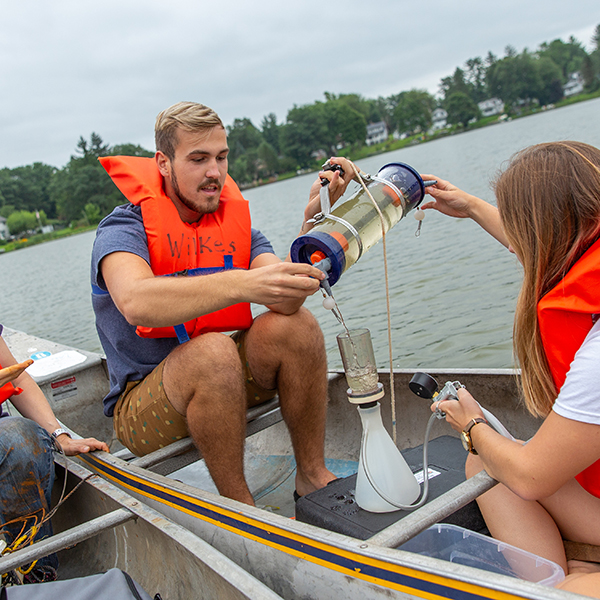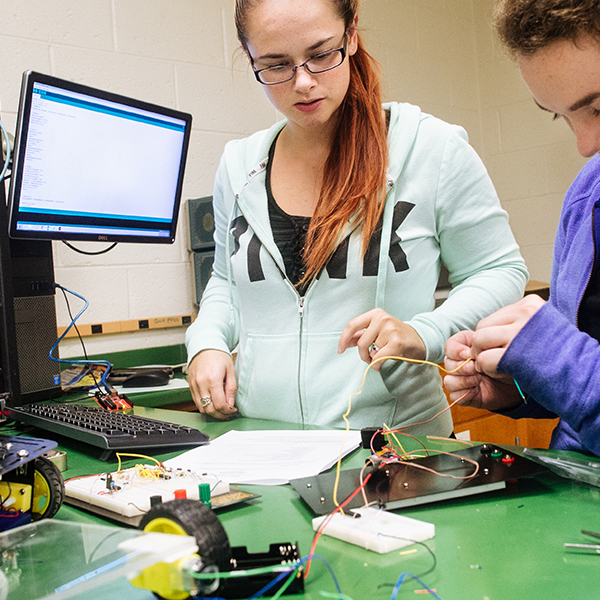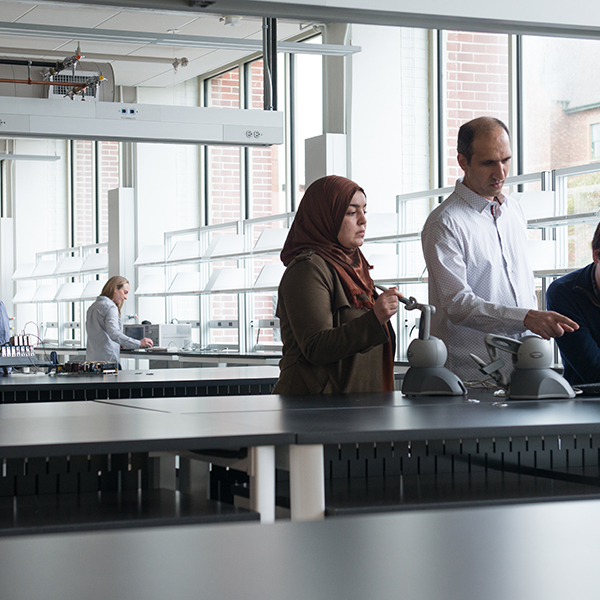With a civil engineering degree from Wilkes, you can help design, build, and maintain infrastructure that society depends upon. Your role can be to develop foundations and structures, design public water and wastewater treatment systems, develop stormwater management resources or focus on hazardous waste treatment facilities.
Program Snapshot
| Program Type | Format | Credit Hours |
|---|---|---|
| Major | On Campus | 128 |
Why Study Civil Engineering at Wilkes?
You’ll work in small classes and laboratories with dedicated faculty who are experienced civil, environmental, and mechanical engineers with professional engineering licensure, and/or who earned the highest degree in the field.
You will benefit from our hands-on approach to learning engineered systems and design. You will have the opportunity to learn a variety of software systems that are commonly used in industry while you establish a strong background in all sciences and take part in extensive laboratory and field experiences.
Many capstone projects involve engineers and experts from outside Wilkes on projects that have a direct impact in northeast Pennsylvania. Our Industrial Advisory Council, comprising alumni engineers and other professionals from the region, ensures that the Wilkes curriculum answers relevant and real-world industry needs.
What Will You Learn as a Civil Engineering Major?
- Gain a broad foundation in mathematics, chemistry, physics, general engineering and geosciences.
- Learn to solve engineering problems and manage projects.
- Cultivate collaboration skills in group projects and activities with both engineering and science students and with faculty who have diverse technical background and expertise.
- Use the latest software and technologies for system analysis and engineering design.
- Develop leadership, speaking, writing, organizational and problem-solving skills.



